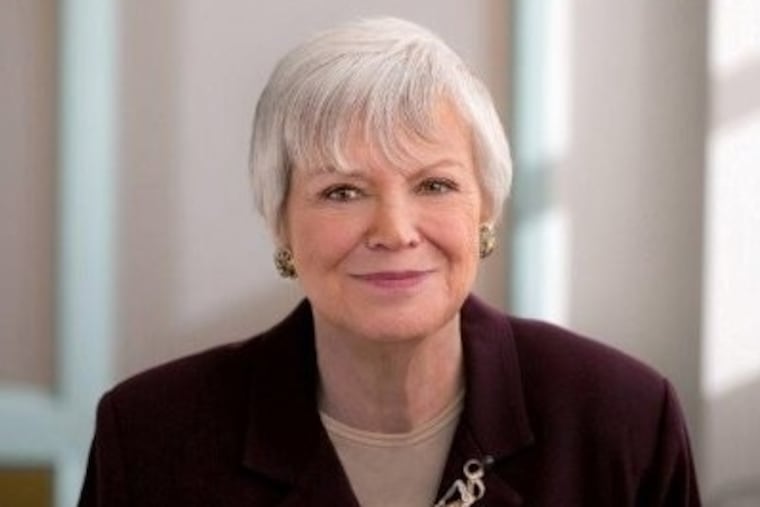Myrna Shure, professor emeritus at Drexel, celebrated child psychologist, researcher, and author, has died at 85
She was an expert on how children grow and change, and her groundbreaking "I Can Problem Solve" and “Raising a Thinking Child" programs became national models for elementary education.

Myrna Shure, 85, of Philadelphia, professor emeritus at Drexel University, celebrated family and child psychologist, researcher, author, consultant, and lecturer, died Tuesday, Jan. 3, of cardiac arrest at her home in Center City.
An expert in child development and family relationships, Dr. Shure was a pioneer in what is now called social-emotional learning. Her decades of in-class research with collaborator George Spivack and others resulted in two groundbreaking educational programs: “I Can Problem Solve” for schools and “Raising a Thinking Child” for parents.
The eight-week curriculum for children in preschool through sixth grade features games and activities that focus on how children think, not what they think, and how teachers and parents can better train children to recognize problems and solve them effectively.
“The ultimate goal,” Dr. Shure said on her website, “is to increase the probability of preventing later more serious problems by addressing the behavioral predictors early in life.”
The programs, widely introduced in the early 1990s, have been used in schools, homes, and elsewhere around the world and are sanctioned by the U.S. Department of Education, American Federation of Teachers, National Association of School Psychologists, and other educational organizations. In conjunction with the programs, Dr. Shure published training manuals, workbooks, exams, and three popular books: l994′s Raising a Thinking Child, 2000′s Raising a Thinking Preteen, and 2004′s Thinking Parent, Thinking Child.
She explained her programs on the Oprah Winfrey Show and other TV and radio shows, coauthored four other books, and wrote dozens of reviews, articles and book chapters about childhood education, health, and other topics. She also wrote a weekly column for the Daily News in the early 2000s in which she offered advice on issues ranging from spanking to siblings to stepparents.
In a 2002 column entitled “The true test for kids: Learning how to solve life’s problems,” she said: “To help our kids relieve emotional stress that may prevent them from concentrating on their schoolwork, we must teach them the skills to solve problems that are important to them now. We must then give them the freedom to use those skills in everyday life.”
Dr. Shure was an instructor, professor, and researcher in the department of psychological and brain sciences at Hahnemann University, now part of Drexel, from 1968 until she retired in 2012. She was previously an assistant professor for two years at Temple University and an instructor for one year at the University of Rhode Island.
She earned numerous research grants, was a member of many scientific societies, and served on national education committees and editorial boards. She won lifetime achievement awards from the National Mental Health Association, American Psychological Association, and other groups. The Dr. Myrna B. Shure Award is presented annually by her own programs to exceptional teachers and child care professionals.
She was a consultant for universities, companies, and government agencies, and hosted training workshops and lectured around the country and in Canada. “She could tune in on people of any age,” said her cousin Dionne Laufman. “Her empathy was extraordinary.”
Born Sept. 11, 1937, in Chicago, Myrna Beth Shure knew she wanted to be a nursery schoolteacher in a university laboratory when she was young. “I said to myself, ‘When I grow up, I’m going to make up a better way to talk to kids,’” she said in a video.
So she earned a bachelor’s degree in sociology at the University of Illinois, a master’s degree in child development at Cornell University, and a doctorate in child development and family relationships at Cornell in 1966. She moved to Philadelphia for an instructor’s job at Temple and joined Spivack at Hahnemann in 1968.
Away from the classroom and lab, Dr. Shure followed baseball, played tennis as often as possible, and was a longtime member at the Germantown Cricket Club. “She adored her students as her children,” Laufman said. “Her work and her friends were the loves of her life.”
In an online tribute, a friend said: “She was a great soul with many unique traits.” Another friend called her “very kind and generous.”
Overall, Dr. Shure seemed optimistic about her work and the future. “Maybe, just maybe,” she said in a video, “we can have a more empathic and humane world as time goes by.”
In addition to her cousin, Dr. Shure is survived by other relatives. A brother died earlier.
A celebration of her life is to be held later.
Donations in her name may be made to the American Cancer Society, P.O. Box 6704, Hagerstown, Md. 21741.